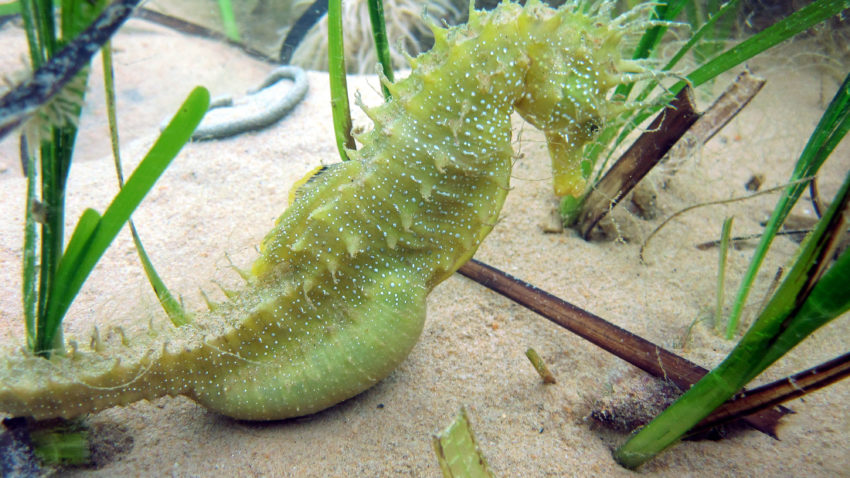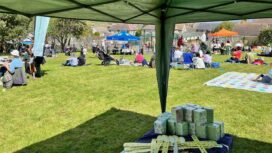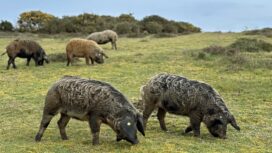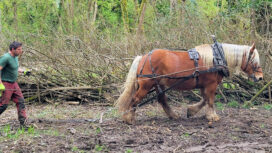Saving Studland’s seahorses moved one step closer after Natural England published new conservation advice aimed at protecting the bay’s species and habitat.
Now that the UK Government has designated Studland Bay as a Marine Conservation Zone, there’s a duty to ensure that favourable environmental conditions are maintained and restored for all the sea creatures, including seahorses.
Home to the Spiny Seahorse
The new guidance will help people think about the impact of what they’re doing or plan to do, and act to protect the habitat and species at this protected site. The area is predominantly home to the Spiny Seahorse but the UK’s other native seahorse, the Short-snouted Seahorse has also been spotted.
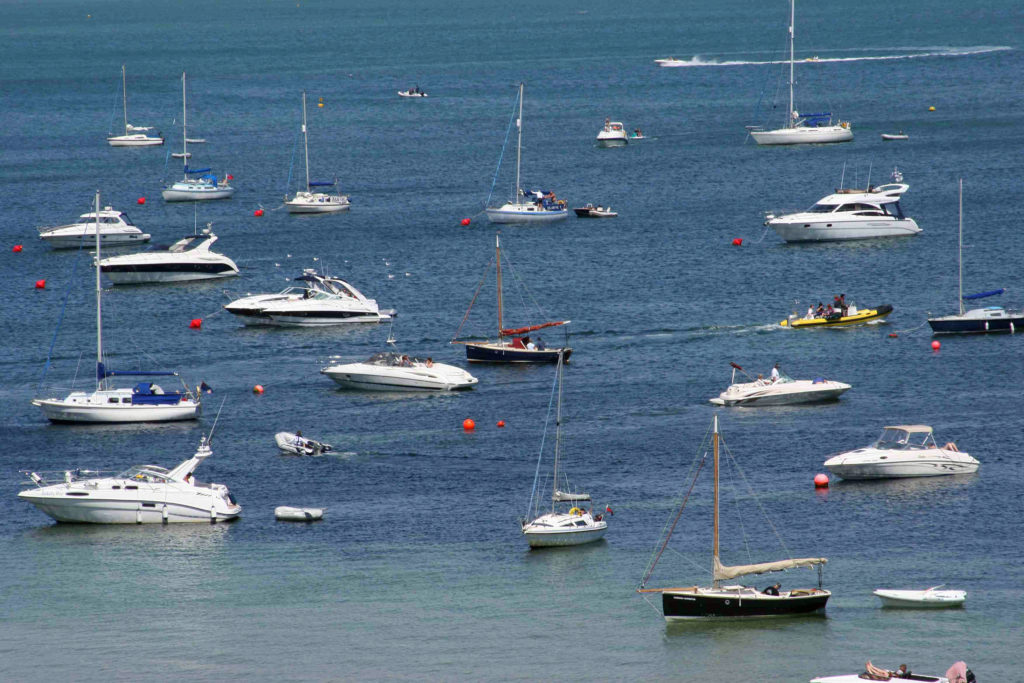
The main reason behind the decline in the number of seahorses in Studland is the damage by boat moorings to the seagrass beds, the seahorses’ natural breeding ground. The mooring chains scrape across the grass on the seabed with the movement of the tide, causing the grass to be uprooted. Similarly a boat’s dropped anchor can bring up the seagrass with it, when it’s lifted.
Marine Senior Adviser for Natural England’s Wessex team, Gavin Black explained the problems at Studland:
“Due to its location and sheltered conditions it is a very popular place to anchor for recreational vessels. Making sure activities in the site do not damage seahorse habitat is highly important for the survival of this species.
“Since the Government designated Studland Bay as a Marine Conservation Zone in May 2019, the Marine Management Organisation has a duty to introduce appropriate management to further the conservation objectives of the site. The new conservation advice package will enable targeted discussions on the most suitable and sustainable management options available.”
Management group “must be set up”
The Seahorse Trust founder, Neil Garrick-Maidment who campaigned for Studland Bay to become a Marine Conservation Zone, has welcomed the published guidance but says it’s critical that a management group that includes all parties including boat owners, must be set up:
“They’ve got to put some action behind the paperwork. It’s great that people will now have to think twice about what they do and the impact it has on the environment at Studland, so it’s one step forward. However the key and crucial move must be for the Marine Management Organisation to set up the management group, as they are obliged to do, to start looking at solutions to restore the seagrass meadows and to give the seahorses back their breeding ground.”
The damage to the seagrass has increased over the years with the rise in the number of boats that are drawn to the beauty of Studland, especially to the South Beach area, close to the Old Harry Rocks. In normal circumstances, August can regularly see hundreds of recreational boats all moored closely together, near to the shoreline.
Environmentally friendly moorings
A number of solutions to meet the needs of both the boat owners and the seahorses have been discussed. This includes installing a no anchor zone, creating different zones to reduce the density of the number of boats and replacing the traditional moorings with environmentally friendly moorings.
The environmentally friendly moorings or EFM’s, do not have a chain that scrapes along the seabed. Instead they either have an elastic rode that links the anchor with the float and expands with the height of the tide or a chain rode that is kept off the seabed with floats. However there is a cost to replacing and installing these new moorings.
Neil Garrick-Maidment added:
“Boats have every right to shelter in Studland Bay but there are ways of doing it without destroying the environment for the seahorse. I’m an optimist – I have to be! We will come up with a solution for the two to co-exist.”
For more information
The Seahorse Trust is an organisation that preserves and conserves the national world, especially the marine environment and the seahorse species.
News release from Natural England about the publication of new conservation advice about Studland and other Marine Conservation Zones.
